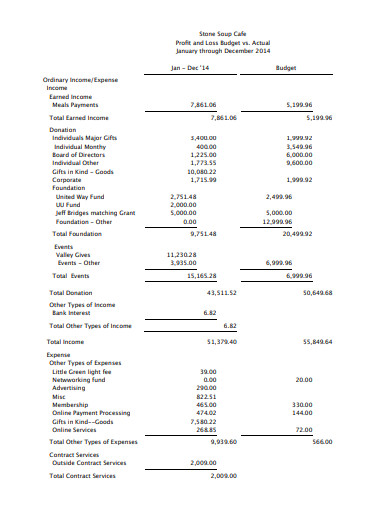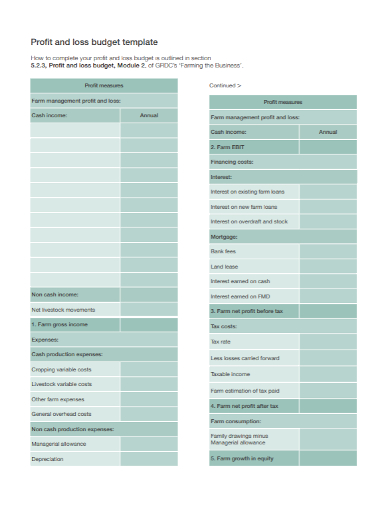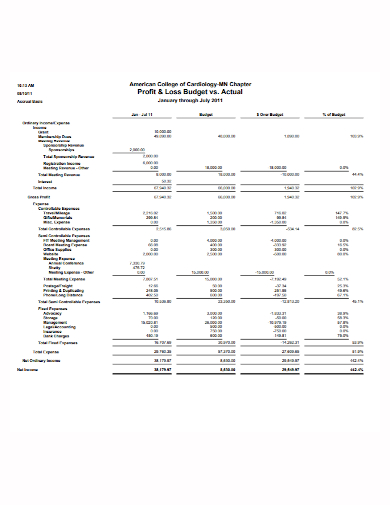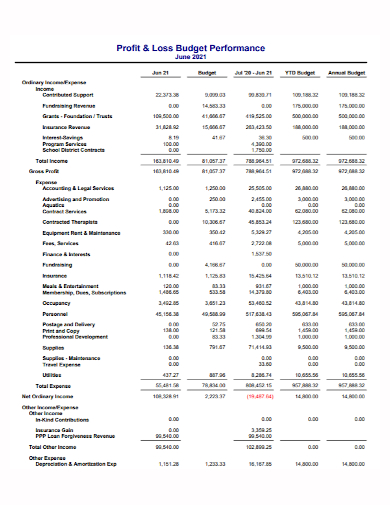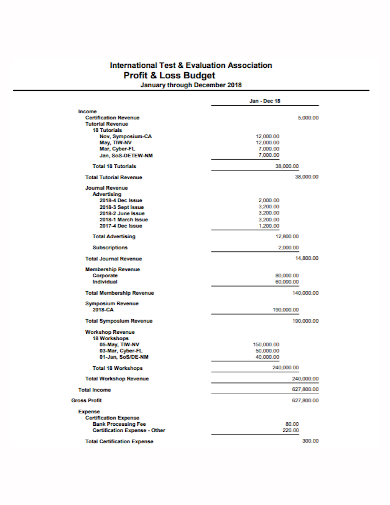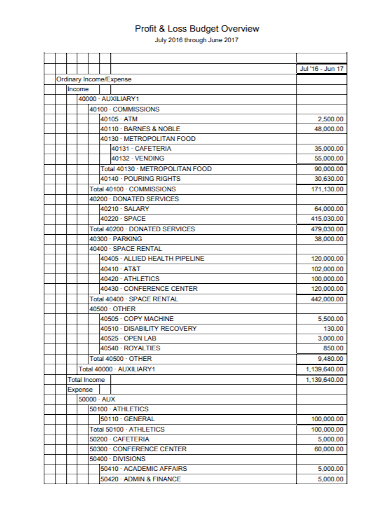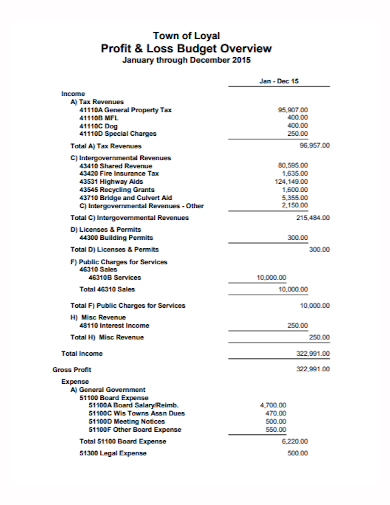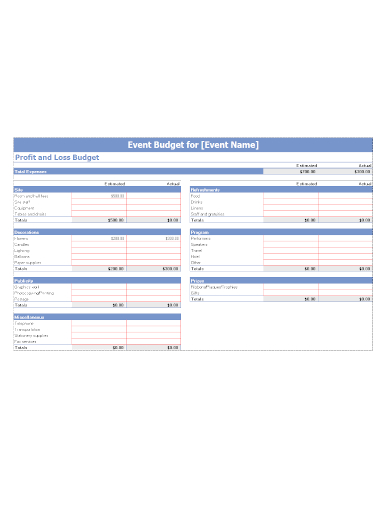The profit and loss budget helps business owners know more about their revenue and expense details. It helps them know how much revenue they’re earning every month, or quarterly, or annually and it also helps them what expenses they’ve spent. Furthermore, it helps them prioritize and strategize which costs need to be lessened to save money and think of ways to increase their revenue. If you’re a new business owner and you don’t know how to make a profit and loss budget, you’re in the right place. This article will guide you on how to make a profit and loss budget.
10+ Profit and Loss Budget Samples
1. Profit and Loss Budget Template
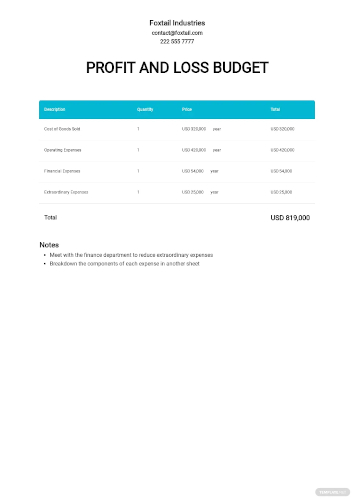
2. Monthly Profit and Loss Budget Template
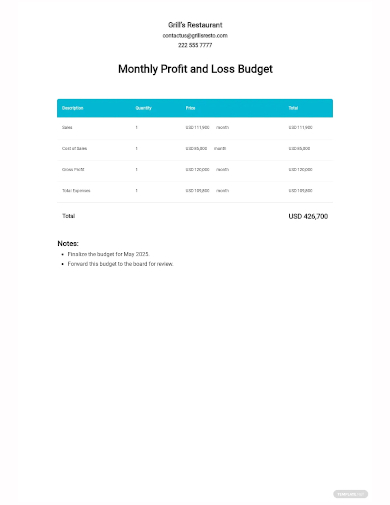
3. Profit and Loss Statement Budget Template
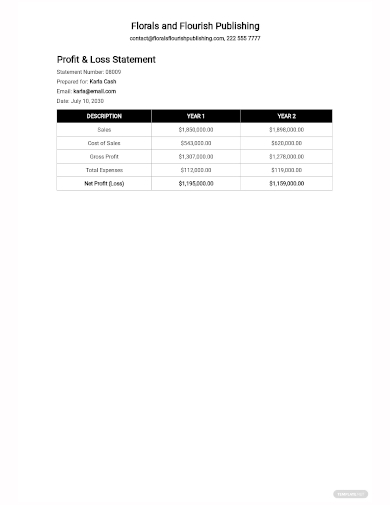
4. Café Profit and Loss Budget
5. Profit and Loss Budget
6. College Profit and Loss Budget
7. Profit and Loss Performance Budget
8. Profit and Loss Evaluation Budget
9. Profit and Loss Income Budget
10. Profit and Loss Revenue Budget
11. Profit and Loss Event Budget
What is a Profit and Loss Budget?
The profit and loss budget is a summary of the expected income and expenses of a business. It is prepared annually but sometimes businesses create this budget in shorter periods if there are urgent matters in the financial aspect of the business that need to be addressed.
How to Create a Profit and Loss Budget
1. Calculate Your Revenue
The first step in creating the profit and loss budget is to calculate all the revenue your business has earned. You can do this by obtaining current account balances from the balances in your account. If you’re creating a monthly profit and loss statement, including all of the revenue received every month while if you’re doing a quarterly budget, add all the revenue you’ve received in the quarter time frame.
2. Calculate the Cost of the Goods Sold
The cost of goods sold is what you need to calculate next. This is important to include in the profit and loss statement. If you’re selling products, including the cost of purchasing materials and producing them from the manufacturer. If you’re selling services, including the cost of your and your employees’ times that provide the service.
3. Determine the Gross Profit
Once you have calculated your revenue and your cost of goods sold, subtract the cost of goods sold from the revenue to get the result of your gross profit amount. Your gross profit is the profit your business earned from selling your products and/or services.
- Revenue – Cost of Goods Sold = Gross Profit
4. Calculate the Operating Expenses
Calculate all of your operating expenses. Your operating expenses include rent, transportation, payroll, equipment, utilities, and all the costs that relate to your business operations.
5. Calculate the Operating Profit
Once you have calculated your operating expenses, subtract them from your gross profit to obtain your total operating profit or loss.
- Gross Profit – Operating Expenses = Operating Profit/Loss
6. Calculate EBITDA
If you have any other additional income that is not included in your revenue mentioned above, such as interest income or dividends from investments, include them in your profit and loss budget. Add them all including the operating profit to come up with the number of your earnings before interest, taxes, depreciation, and amortization (EBITDA).
- EBITDA = Operating Profit + (Interest Income + Dividends Earned)
7. Calculate All Interest, Taxes, and Other Expenses
Calculate any interest payments, taxes, depreciation, and amortization expenses.
8. Calculate the Net Profit
Once you’ve got the answer from the section above, subtract them from your EBIDTA to get your net profit.
- EBIDTA – (Interest + Taxes + Depreciation) = Net Profit/Loss
FAQs
Why does a business need a budget?
Below is a list of reasons why a business needs to have a budget:
- Budgets help the business reach its goals by giving them clear directions on how it will reach its goals.
- Budgets provide leading indicators to let the business owners what drives profits into the business.
- Budgeting helps business owners prepare for threats, challenges, upturns, and opportunities.
What is profit and loss forecast?
A profit and loss forecast is a business projection of how much money the business will bring in through the sale of its products and/or services and how much profit it will make from these sales.
What are the differences and similarities between a profit and loss statement and a profit and loss budget?
Below are lists of the differences and similarities between profit and loss budget and income statement:
1. Differences
- A profit and loss budget only relies on estimated costs and revenues to project a potential net income while an income statement looks back over some time by evaluating past expenses and revenues to determine their earnings on an actual basis.
- Investors use the income statement as their reference to know whether a business is profitable or not.
- Profit and loss statements show the risk of investing in a company.
2. Similarities
- The profit and loss budget and income statement both measure revenue streams and expenses.
- They also both track a company’s profitability on loss.
- They both contribute to a business owner’s understanding and control over the financial well-being of their business.
Creating a profit and loss budget for your business is always important since it helps determine whether your business is profitable or not. It will point out which areas in your business are booming and which areas need attention. You will also need to create one if you’re planning to apply for loans or request investors to invest in your business. To help you get started making the profit and loss budget, download our free sample templates above to use as your guide!
Related Posts
FREE 10+ Annual IT Budget Samples in MS Word | MS Excel | Google Docs | Google Sheets | PDF
FREE 5+ Yearly Budget Planner Samples in PDF | XLS
FREE 10+ Expense Budget Samples in MS Word | Google Docs | Google Sheets | MS Excel | PDF
FREE 4+ Vacation Budget Planner Samples in PDF
FREE 10+ Budget Outline Samples in PDF | MS Word
FREE 10+ Monthly Budget Worksheet Samples in PDF | MS Word | Google Docs | Google Sheets | Excel
FREE 10+ Monthly Project Budget Samples in MS Word | MS Excel | Google Docs | Google Sheets | PDF
FREE 10+ Corporate Budget Samples in MS Word | MS Excel | Google Docs | Google Sheets | PDF
FREE 9+ Primary School Budget Samples in MS Word | Google Docs | Google Sheets | MS Excel | PDF
FREE 10+ Operational Budget Samples in PDF | DOC
FREE 5+ Budget Layout Samples in PDF
FREE 6+ Paycheck Budget Samples in PDF | MS Word
FREE 10+ Architecture Budget Samples in PDF
FREE 10+ Budget Tracker Samples in PDF | DOC
FREE 4+ Corporate Monthly Budget Samples in MS Word | Google Docs | Google Sheets | Excel

